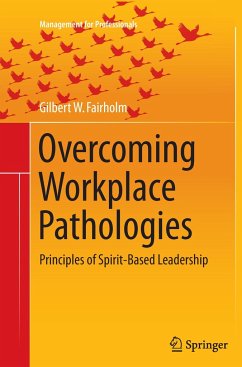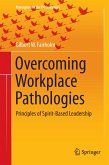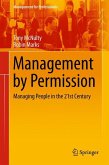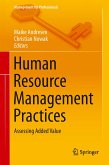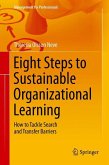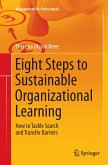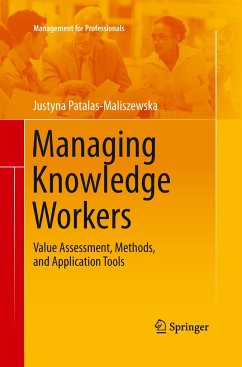This book deals directly with the characteristics of the relationships that the leader builds in the context of the work environment. It argues that the prevailing work community work culture is intended to help the leader lead but, increasingly it impedes the leader's work. Leadership is a function of the leader's values, attitudes, and aspirations: leadership flows from the leader's spiritual character-defining core essence. However, the author argues that cultural forces coming from both inside and outside the workplace, often designed to promote diversity, inclusivity, and tolerance, have introduced into the work culture values and behavior that are pathological to executing effective leadership and detrimental to the health of work communities. While attractive on the surface, these new values are toxic to the idea of relationship and thus threaten the work community culture, in effect "killing leadership."
This book will arm leaders with the tools, resources, and techniques to recognize and overcome workplace pathologies. After reading this book, leaders will:
have a complete understanding of the key principles of spirit-based values leadership see clearly that the leader's values shape both the leader's one-on-one relationships with coworkers and are at the center of the work culture they create to re-enforce coworker actions and decisionsappreciate more fully the power of the ambient work culture to influence coworkers toward leader set values and methods guiding the work communityknow the toxic effect on doing leadership of introducing non-work values and standards into the work community cultureunderstand the arguments against allowing subgroups of the work community to form and practice values opposed to the values the leader has set for the full groupbe better prepared to deal with the consequences of encountering evil, hatred and/or fear in theworkplacerealize that not all coworkers are uniformly honest and truthful and learn ways to counter this behavior and still accomplish the work community's goals and ensure its productivity
The result is a pragmatic approach to aligning values, behaviors, and performance, while enhancing the principles of effective and positive leadership throughout the organization.
This book will arm leaders with the tools, resources, and techniques to recognize and overcome workplace pathologies. After reading this book, leaders will:
have a complete understanding of the key principles of spirit-based values leadership see clearly that the leader's values shape both the leader's one-on-one relationships with coworkers and are at the center of the work culture they create to re-enforce coworker actions and decisionsappreciate more fully the power of the ambient work culture to influence coworkers toward leader set values and methods guiding the work communityknow the toxic effect on doing leadership of introducing non-work values and standards into the work community cultureunderstand the arguments against allowing subgroups of the work community to form and practice values opposed to the values the leader has set for the full groupbe better prepared to deal with the consequences of encountering evil, hatred and/or fear in theworkplacerealize that not all coworkers are uniformly honest and truthful and learn ways to counter this behavior and still accomplish the work community's goals and ensure its productivity
The result is a pragmatic approach to aligning values, behaviors, and performance, while enhancing the principles of effective and positive leadership throughout the organization.

